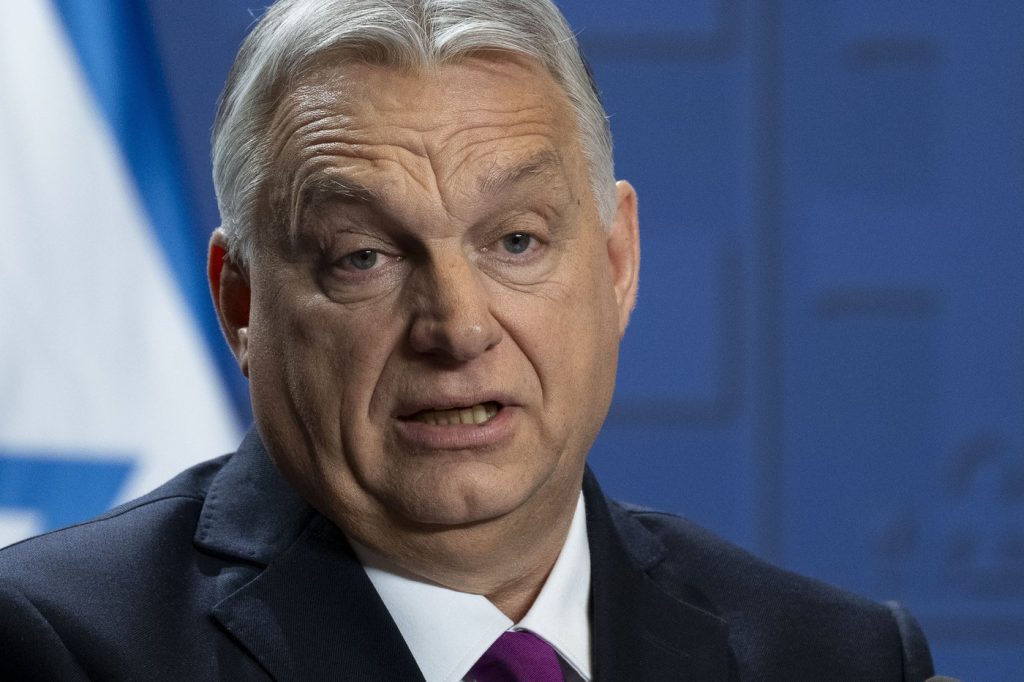BUDAPEST, Hungary (AP) — Hungarian Prime Minister Viktor Orbán on Friday made serious allegations against Ukrainian authorities, claiming that a Hungarian-Ukrainian dual citizen was beaten to death during his mobilization for military service. This accusation, which Ukraine has firmly rejected, has intensified the already strained relations between the two neighboring countries.
During a state radio interview, Orbán, a prominent critic of Ukraine amid its ongoing conflict with Russia, stated that the man, who reportedly died in a Ukrainian hospital earlier this month, had been "beaten to death" by military recruiters. He did not provide any evidence to support his claim and mentioned that the situation is still under investigation.
Orbán's remarks came on the heels of Hungary's foreign ministry summoning the Ukrainian ambassador regarding the unverified report. The ministry alleged that Ukrainian military recruiters had physically assaulted the man as part of a "forced conscription" into the military before he was taken to a recruitment center.
In response, Ukrainian authorities disputed Orbán's account, asserting that the deceased was a Ukrainian citizen who had left his military unit without permission and subsequently admitted himself to a hospital. They indicated that no signs of violence were found during his examination. The Ukrainian embassy in Budapest clarified that the cause of death was a pulmonary embolism, stating, "We categorically reject any allegations of forced conscription, mistreatment, or human rights violations" by Ukrainian military officials while expressing openness to a "transparent investigation."
This diplomatic dispute further complicates the relationship between Ukraine and Hungary, both members of NATO and the European Union. While the majority of EU nations have extended political, financial, and military support to Ukraine since the Russian invasion began on February 24, 2022, Hungary, under Orbán's leadership, has taken a markedly different approach.
Hungary has consistently declined to provide weapons to Ukraine or permit their transit through its territory, demanding an easing of sanctions and advocating for closer ties with Russia. Additionally, the country has adopted a confrontational posture toward both Kyiv and EU supporters.
In light of dwindling support for his ruling Fidesz party in the polls and the emergence of a new opposition force, Orbán has intensified an extensive anti-Ukraine campaign. He has framed the upcoming elections as a referendum on peace versus war, accusing the Ukrainian government of attempting to destabilize his administration in favor of a more pro-Ukrainian leadership.
Earlier in May, tensions escalated further when a series of diplomatic expulsions occurred between Hungary and Ukraine. This followed claims by Ukraine's main intelligence agency that it had detained two individuals suspected of espionage in favor of Hungary, gathering intelligence on Ukraine's military activities in the west of the country.
In summary, the deteriorating relations between Hungary and Ukraine underscore the complexities of regional politics, particularly in the context of Orbán’s increasingly critical stance toward Ukraine during a time of war. As the situation develops, it remains crucial for both nations to navigate these tensions carefully.











